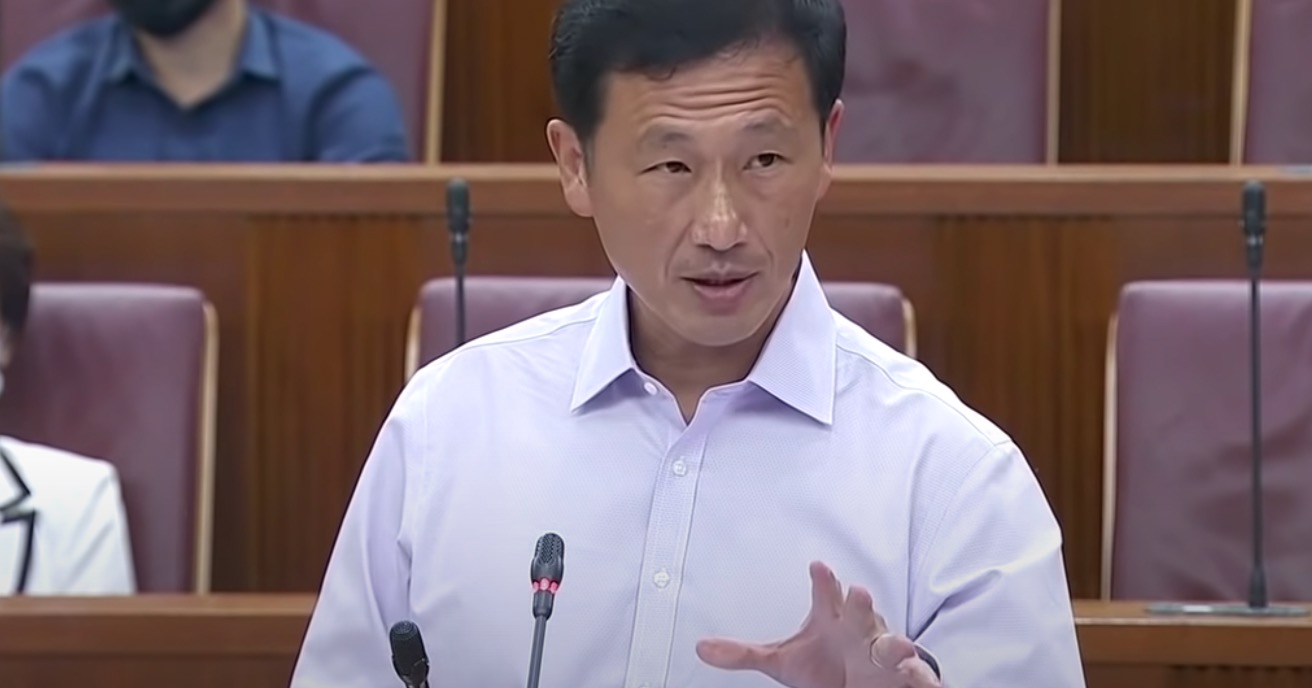Follow us on Telegram for the latest updates: https://t.me/mothershipsg
Singapore's high rate of vaccination has helped it to record an excess mortality rate that is among the lowest in the world, Health Minister Ong Ye Kung said on Monday, Oct. 3.
Speaking in Parliament, Ong said this was also due to Singapore's ability to preserve its healthcare capacity in handling Covid-19 patients.
Member of Parliament Tan Wu Meng of Jurong asked if there would be a study on excess deaths due to the pandemic.
Dilemma posed by Covid-19
Ong described the "severe dilemma" posed by Covid as "lives over livelihoods" in regions all over the world.
Extreme measures like closing borders and locking down helps to save lives, but at the cost of economic paralysis and interrupting the education of school children.
However, Singapore has managed to strike a good balance.
"Three years into the pandemic, Singapore has been able to open up our society and economy with life almost going back to normal, and yet we maintain an excess mortality rate that is one of the lowest in the world," Ong said.
Between January 2020 and June 2022, using the pre-Covid year of 2019 as a baseline, there was an increase of 24.9 deaths per 100,000 persons per year.
This rate of excess deaths is much lower than many other countries, Ong said, especially those who have also opened up like Singapore. He explained that the two methods to help keep this rate low are vaccinations and preserving healthcare capacity.
Vaccinations are key
Ong explained vaccination was a key way to prevent excess deaths, as it significantly reduces the risk of severe illness.
"The fact that Singapore got 93 per cent of our population vaccinated, and that base includes children that are not eligible, and 80 per cent boosted, is a key reason why we have low excess deaths," Ong said.
Unvaccinated persons, however, disproportionately contributed to Covid deaths. In the first half of 2022, about 5 per cent of the eligible population are not fully vaccinated, but they contributed to 28 per cent of Covid deaths.
Ong said that the number of people medically ineligible for vaccines is very small, given the choice of vaccines they have access to.
Recently, the non-mRNA vaccine Novavax was added to Singapore's list, along with the mRNA Pfizer and Moderna vaccines.
Ong reiterated that just two shots of a vaccine "do not do the job properly" and encouraged the public to get a booster shot.
Singapore is also bringing in bivalent boosters that offer better protection against variants.
Healthcare capacity important too
The other factor in keeping down excess deaths is preserving healthcare capacity and ensuring that hospitals are not overwhelmed.
By overwhelmed, it does not mean a hospital is very busy, Ong explained. Hospitals in Singapore have been and continue to be very busy.
"'Overwhelm[ed]' means there were so many severely ill Covid-19 patients that the hospitals ran out of beds, ran out of oxygen, ran out of medical staff to take care of them. Patients are essentially left to their demise.
And whenever a bed or an equipment becomes available, doctors have the unenviable task of choosing who should they save amongst everyone that's waiting."
Ong also pointed out that in such a situation, critically ill patients not suffering from Covid, such as someone who suffered a heart attack, will be left without proper care.
However, Singapore did not let that come to pass, in part thanks to the circuit breaker modes that helped to reduce transmissions.
Hospitals and ICU beds were still able to treat Covid-19 patients throughout the pandemic, and they must be well-resourced in the future.
Ong added that he could not rule out the re-imposition of Safe Management Measures in the future, only if absolutely necessary to save lives and protect the healthcare system.
Related story:
Top image from CNA YouTube.
If you like what you read, follow us on Facebook, Instagram, Twitter and Telegram to get the latest updates.
